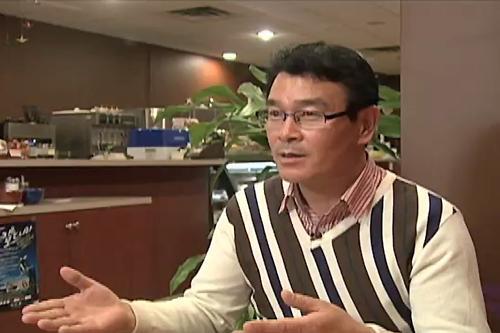TORONTO (Yonhap News) ― Hundreds of years after European migrants traveled to North America seeking refuge and opportunity, groups of North Korean defectors have begun to resettle in Canada, with many calling the city of Toronto their new home.
Canada accepted 83 North Korean refugees in 2011, double the number of the previous year.
Heo Tae-seop is a North Korean defector who has been living in Toronto since May. For people like Heo, the consequences of attempting an escape can be severe. Those caught are repatriated and reportedly receive severe punishment. Some lucky individuals manage to sneak through the border and into China, while others navigate the harsh ocean waters to South Korea. Then, there are those who make the journey to North America where an entirely new life awaits.
“People who have just defected from North Korea do not know about democracy because they have been closed off from the world for so long,” said Heo. “For example, I am 48 years old, but in Canada I feel like I am a 1-year-old baby because I don’t know anything about Toronto or this country.”
Heo worked as a factory employee in North Korea. He fled from North Korea through China after his wife and child died.
“When all of my family had gone, I was no longer afraid of dying.” he said.
Although he cannot speak English, Heo hopes to share his stories with the world. For this reason, he helped organize North America’s first North Korean photo exhibition to shed light on the harsh reality of life in his home country.
Hosted by Dosan Gallery at the Korea Times building in Toronto, the exhibit commenced with a night of film screenings and guest speakers who shared stories about the hardships of life in North Korea.
The Toronto North Korean alliance, a group of North Korean refugees, hopes that these awareness activities will influence dictatorial powers to close prison camps and start respecting their people.
“In North Korea, people live with constant fear and anxiety. So they cannot do anything with confidence. We would like the Canadian governments to provide North Korean people with job training and help set us up with confidence,” says Heo.
 |
Heo Tae-seop, a North Korean defector who settled in Toronto last year. (Yonhap News) |
Chris Kim, director at the Korean Canadian Cultural Association of Toronto, helps North Korean refugees transition into Toronto life.
“People have a compassionate mind and a kind heart, but what good is it if you don’t exercise it? That’s my motive,” says Kim, who is a participant in organization’s outreach program to the defectors. “I believe in the Bible. It says ‘love thy neighbor’ no matter what, or who it is. It doesn’t matter.”
The HanVoice at the University of Toronto also strives to advocate for refugee rights so they can lead ordinary lives in Toronto. The HanVoice believes that concerned Canadians should raise their voices on behalf of North Koreans ― who have struggled to find their voice.
With the recent death of “Dear Leader” Kim Jong-il, Canadian Prime Minister Stephen Harper said that it is a “critical juncture” for North Korea and its people. Harper hopes that the North Korean government will begin a stronger relationship with the international community.
“We urge North Korea to close this sad chapter in its history and to work once more towards promoting the well-being of its people and stability on the Korean peninsula.” Harper said.
Canadian Foreign Affairs Minister John Baird said, “It is past due for North Korea to change its ways and for those who lead it to meet the real needs of the North Korean people.”
In the meantime, Canada will continue to accept North Korean asylum seekers and offer them support.
Heo, who currently spends most of his time studying English, is very thankful to the Canadian government for accepting North Korean refugees and making Canada a place for him to live. When he first arrived in Toronto, he was shocked by the multiculturalism in the city, and impressed with how the diverse community has been able to coexist together.
“I think it will take some time to adjust our minds to be able to live in Toronto,” said Heo. “Once we do that, we can successfully live as members of a democratic country.”








